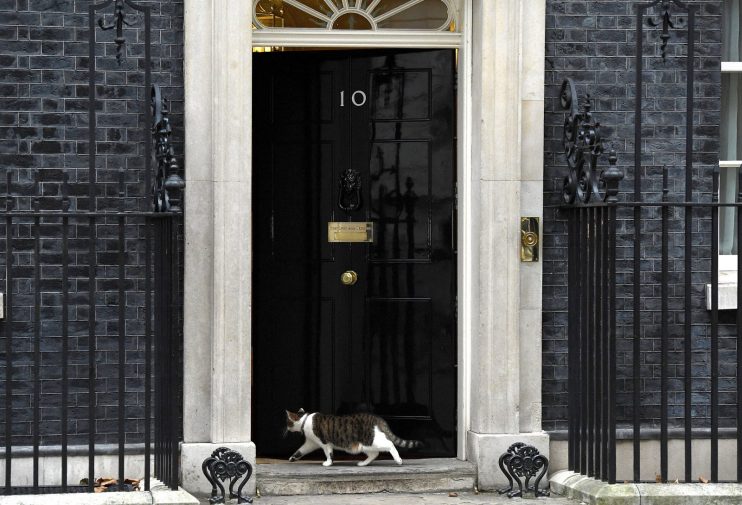Pay no attention to the dysfunctional comms team behind the Downing Street curtain

There’s a well-known warning in the world of theatre tech: if someone notices the lighting, you haven’t done your job.
Yes, sometimes dazzling special effects are what make a show, but nine times out of 10 the audience only becomes aware of the tech if something goes wrong. The way you know you’re doing a good job is that people don’t even realise you had a job at all.
As with theatre, so with communications. PRs, consultants, spin doctors — we know there are teams of comms professionals behind the scenes of every corporate or political announcement, but we don’t really think about them much.
This week, we can’t avoid thinking about them, especially their role in government. First, it was reported that Kate Binghham, the head of the UK’s vaccine task force, spent £670,000 of taxpayer money on a team of eight elite PRs to help prep her for media appearances and produce a podcast.
Then Keir Starmer pointed out at PMQs that this was just a drop in the ocean compared to the £130m the government has spent on PR campaigns since the pandemic began, and questioned whether this represented value for money.
As if these external comms headaches weren’t bad enough, Wednesday saw the sensational resignation of Downing Street’s director of communications Lee Cain, rumoured in part to be down to the appointment of Allegra Stratton as the new Number 10 TV spokesperson.
Instead being the means by which the story is communicated, comms — specifically, government comms — has become the story. And that should worry everyone in Downing Street.
These various micro-scandals might seem of little interest to those beyond the Westminster bubble, but in their own way, each has the potential to do real damage to a government that increasingly appears out of control.
The Bingham revelations have become a story about cronyism and lack of transparency. It is reported that no one in Whitehall signed off on her expensive consultants, suggesting that this unelected official — who went through no standard application process for the role and is coincidentally married to a Conservative MP — is able to splash taxpayer cash at will.
Despite Bingham’s apparent success as vaccine tsar (the UK is, after all, signed up for 30 million doses of the new vaccine), the dearth of accountability invites obvious comparisons with Dido Harding, another wife of a Tory MP inexplicably placed in charge of NHS Test and Trace whose penchant for “failing upwards” has made her a national laughing stock.
It has also raised questions about why exactly Bingham’s comms gurus were needed. The Department for Business, Energy and Industrial Strategy (Beis), from which supposedly operates, has 130 comms staff of its own. Couldn’t they have helped with media prep and podcast production? Why the need to pay £670,000 to a private firm?
The £130m spent on pandemic PR more generally is easier to understand: it went towards “TV, radio and print adverts so that the public can be made aware of key public health information” — all those videos showing correct hand-washing technique and billboards telling you to stay at home. But news of such a high sum (paid almost entirely to a single agency) draws attention to Downing Street’s overall comms record these past nine months.
Even supporters of the government accept that its Covid communication has hardly been triumphant. Confusing and misleading rules have been changed overnight with little notice; ministers have made errors explaining guidance on air; baffling, misleading and downright inaccurate graphs have been displayed at press conferences, only to be furtively corrected afterwards.
More generally, the tone of the messaging has been hectoring and heavy-handed rather than persuasive — justifiable perhaps at the start of the pandemic when everyone was getting used to the new rules, but veering towards hypocritical after news broke of Dominic Cummings’ unsanctioned trip to Durham and Barnard Castle. Treating the nation like naughty school children when the Prime Minister’s chief aide broke the rules with impunity is not a recipe for compliance. Any PR professional worth their fee would have been able to tell Downing Street that.
Which brings us back to Cain, himself an ally of Cummings. Forget what sparked the row in the court of Number 10, the fact is that the infighting was enough to make the front pages of several national newspapers. This, for a comms professional, is a death knell. As was pointed out at length about Tony Blair’s spin doctor Alastair Campbell, when the spin becomes the story, it’s time to go.
If that’s true in normal times, it matters far more mid-pandemic. People are desperate for reassurance that the government has the competence to handle a nationwide vaccine rollout; they want to know if they’ll be able to see their loved ones for Christmas, if they’ll still have jobs in the new year, if their weddings will be allowed to go ahead and their children able to stay in school. They don’t know or care why Cain felt he had to quit, only that the government seems more focused on who gets which comms job than on liberating the country from lockdown.
Ultimately, comms dysfunction matters because it is symptomatic of an administration that looks like it’s lost control — it has grabbed attention because it encapsulates all the worries that we have over whether these people have the capability to lead us out of the current mess.
If they can’t even light up the stage properly, why should we trust them to do anything else?
Main image credit: Getty